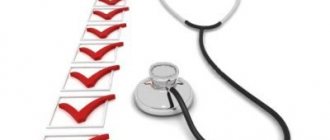Memory loss is a common complaint in both older and younger people. If such a complaint appears, it is important to consult a doctor as soon as possible to identify the causes and mechanisms of memory impairment. Identifying and eliminating the disease at the initial stages will allow you to avoid more severe disorders such as amnesia, encephalopathy, dementia, etc.
Objective memory loss and complaints of memory loss do not always accompany each other. Memory loss is the main cause of complaints about lapses. But, about 20% of such complaints are observed in those who do not have objective impairments in memory function. Why? The fact is that such a complaint can be observed with normal memory function in the following cases:
- Attention disturbance. With increased anxiety, asthenic syndrome, depression.
- Overwork due to lack of sleep, malnutrition, prolonged stress and overexertion.
- Large volume of processed information.
- Poisoning with alcohol or drugs.
Memory loss that occurs for the first time always attracts attention and causes anxiety. I forgot my keys and documents at home; made an appointment and forgot about it; I can’t remember individual episodes from yesterday - here is just a small list of complaints about poor memory.
Causes
The most common group of causes of memory impairment is organic damage to brain tissue - encephalopathy:
- Head injuries. Mechanical destruction of nerve cells and connections between them, especially the anterior parts of the brain.
- Atrophic processes in brain tissue. Degeneration and death of neurons. The most common variants are Alzheimer's disease and Pick's disease.
- Neoplasms inside the skull: tumors, cysts, foreign bodies, parasites.
- Overgrowth of connective tissue instead of neurons.
- Vascular disorders. Vascular atherosclerosis, hypertension, congenital pathology of vascular structure, vascular aneurysms. Previous strokes and cerebral infarctions.
- Impaired outflow of intracerebral fluid.
- Osteochondrosis of the cervical spine. Neck injuries. Damage to the vessels in the neck, through which the brain is fed.
- Diabetes. Hypoglycemia (drop in blood glucose levels).
- Long-term use of alcohol, drugs, sedatives and sleeping pills.
- Consequences of poisoning and neuroinfections.
- Epilepsy. Convulsive syndrome.
- ADHD, hypothyroidism, B vitamin deficiency, fasting.
Encephalopathy often becomes chronic and progressive. In the absence of adequate treatment, it can develop into dementia (dementia).
Another group of causes are reversible functional disorders:
- Depression. Anxiety disorders.
- Twilight stupefaction.
- Asthenia (overwork).
- Low blood pressure, lightheadedness.
- Sleepless night the night before.
These disorders have a favorable prognosis for complete memory recovery.
In teenagers
Memory loss is rare in adolescence. Basically, these are manifestations of diseases of internal organs or poisoning.
In young people
At a young age, the cause of memory impairment is often the reversible functional impairments described above. Complaints about memory loss are accompanied by anxiety and increased attention to this issue. People prone to hypochondria begin searching for information on the Internet about memory and brain diseases; they willingly turn to specialists and undergo examinations.
In the elderly
In old age (after 60 years), memory loss often has a cause in the form of organic brain damage, and is often not recognized. And even in severe cases, patients may not understand that their memory is grossly impaired. They are usually brought to doctors by their loved ones, who are the first to sound the alarm.
After alcohol
Blackout of memory during periods of alcohol intoxication is one of the symptoms of alcohol dependence and indicates the formation of alcoholism. This may also indicate the presence of encephalopathy. Normally, drinking alcohol should not turn off your memory; after a period of euphoria, deep sleep should occur.
Games to improve and train memory
Try games to develop phenomenal memory, attention, logic and overall brain development. The ability to see statistics of achievements and compete with other players, beat your own and other people's records, will make this method of memory development even more interesting.
Game "Number Reach: Revolution"
An interesting and useful game “Numeric Span: Revolution”, which will help you improve and develop your memory . The essence of the game is that the monitor will display numbers in order, one at a time, which you should remember and then reproduce. Such chains will consist of 4, 5 and even 6 digits. Time is limited. How many points can you score in this game?
Play now
Game "Memory Matrix"
- Develops memory capacity
- Improves visual memory
- Improves spatial memory
Immediately after the start, a field with several filled cells will appear on the screen. In 3 seconds you need to remember which cells are colored and click on them when the field is cleared. With almost every successful round, the field expands. The more cells you need to remember, the more efficiently your memory develops and the more points you earn. The first results will be available after 10 minutes of play.
Play now
Game "2 back"
To develop memory, I recommend an exercise like the “2 Back” game. A sequence of numbers will be displayed on the screen that you will need to remember, and then compare the number of the last card with the previous one. This is a powerful memory and brain training , this is an exercise that is available after registration, are you ready? Then go ahead!
Play now
Memory comparison game
Another game that can be classified as a memory exercise is “Memory Comparison”. A good exercise for developing memory and speed of thought. At the beginning, a number is given that you should remember, then a second one is given, and you will need to answer a question that does not change during the game. A great game to train your brain. Let's try to improve your memory with us!
Play now
Treatment
Depending on the identified causes and mechanisms of development, the doctor individually selects therapeutic methods for memory restoration. Most commonly used:
- Pharmacological treatment. Neurometabolic therapy. B vitamins in high doses.
- Biofeedback therapy.
- Physiotherapy.
- Massage and exercise therapy.
- Neurocorrectional classes and cognitive training.
- Psychotherapy.
In most cases, treatment is carried out at home (outpatient). If the condition is severe and the patient has no criticism, then examination and therapy are carried out in a specialized hospital.
Treatment of memory loss at the ROSA Clinic:
- Possibility of complete examination and intensive treatment in one place.
- It has its own hospital . We accept you even in serious condition.
- Consultations with experienced specialists in the field of memory disorders. Home visits are possible.
- We work around the clock.
Super memory in 30 days
Remember the necessary information quickly and for a long time. Do light and simple exercises to train your memory little by little throughout the day. Train your memory with dozens of exercises that will be useful in everyday life.
Sign up for a courseRead more
How to improve memory and develop attention
Free practical lesson from advance.
Sign up for freeRead more
Development of memory and attention in a child 5-10 years old
The purpose of the course: to develop the child’s memory and attention so that it is easier for him to study at school, so that he can remember better.
After completing the course, the child will be able to:
- 2-5 times better to remember texts, faces, numbers, words
- Learn to remember for a longer period of time
- The speed of recalling the necessary information will increase
Sign up for a courseRead more
Memory, attention, thinking, or how our brain changes over the years
1
Memory
When we think about getting older, and even more so in the foreseeable future, an association with memory deterioration involuntarily comes to mind. An old, forgetful granny is a collective image of an elderly person. The only paradox is that sometimes memory problems begin long before retirement. Heredity is to blame for this, and to some extent, the lifestyle and conditions in which modern man finds himself (meaning the dominance of technology, gadgets and ever-increasing demands on people’s capabilities). Do you think this is speculation? Not at all. Scientists have investigated the potential for memory decline and found out an interesting thing: memory capacity decreases starting from the age of 20. Yes, yes, this is not a joke. The decline is most noticeable between the ages of 60 and 70, but from the time we reach our twenties, our memory abilities begin to weaken.
And although scientists have not yet determined exactly how memory works, judging by recent research, short-term memory “fills up” over time, like a bookshelf: in order to put a new book, you need to move the one that is already on the shelf somewhere. You cannot supply more books than is possible. In principle, this idea seems logical. However, according to some data, this trick does not work for long-term memory: the older a person is, the more events are stored in his memory.
Stored is the key word. Storing and accessing information are not the same thing. These are two independent processes. Moreover, there are varieties of memorization processes. Everyone knows that short-term memory is used when you need to hold a thought in your mind for about a minute (for example, a telephone number you are going to call). At the same time, it is very important not to think about anything else - otherwise you will immediately forget the number. This statement is true for both young and old people, but for the latter its relevance is still slightly higher.
2
Attention
Attention, or the ability to concentrate, inevitably deteriorates. Neurophysiological tests clearly show this. Older people find it more difficult to switch attention from one object to another, as well as to concentrate on something for a long time. This partly explains the absent-mindedness and lack of concentration that is characteristic of many people. However, poor attention can occur much earlier: in school, adolescence and adulthood. However, here we can already talk about such a disease as attention deficit hyperactivity disorder.
The skill of concentrating is one of the main ones. It is noteworthy that he trains in many religious practices, many of which are now being modified in a modern way. But not just like that, but thanks to science. Research in recent years confirms the hypothesis that mindfulness meditation, popular in the Buddhist tradition, is not only able to “tighten” attention as a cognitive process, but also has a positive effect on the body. A person who meditates regularly gradually gets rid of chronic pain, mood disorders, anxiety and depression. Or, at least, the symptoms of the disease are noticeably weakened. Advanced doctors teach patients what they call “secular meditation,” which is not associated with belonging to any group, community or religious tradition. Also, a similar method is integrated into basic therapeutic models. Focusing on something stimulates the growth of new neurons and activates a specific network of neurons in the brain, which strengthens synaptic connections with certain areas of the brain. Moreover, they are connected not only directly with attention, but also, for example, with social interaction.
3
Thinking
With age, the speed of mental processes decreases. Simply put, a person thinks slower. The speed of reaction and information processing are two factors that are directly involved in our lives. Understanding what is written in a book, remembering a shopping list and making a decision is related to how quickly we can process “incoming data”. This is the most important of the abilities that degrade with age, which is most likely the cause of deterioration of memory and attention, among other things.
Another aspect of the thought process that itself suffers and affects memory is a decrease in the speed of processing units of information and a deterioration in the ability to separate what is important and unimportant. Both of these aspects negatively affect short-term memory. This is easy to notice in everyday life, when a person needs to learn a lot of new things, but not everything is necessary at the moment. For example, it is difficult for an elderly person to concentrate on reading when his grandchildren are playing noisily behind him, since it is more difficult for him to ignore irrelevant information (noise produced by children) and data already present in his mind.
The situation is most serious with the so-called “executive functions” - these are planning and initiating actions, the ability to control emotions and behavior, as well as the ability to keep in mind actions that need to be implemented in the future. These functions help organize our activities, regulate our behavior, and control inappropriate feelings. They manifest themselves in different situations: we are able to avoid crossing the road at a yellow traffic light, although we are in a hurry, and we can concentrate on driving when there are so many distractions around - from beautiful buildings to social networks on a smartphone. By the way, this is one of the reasons why people drive worse as they age.
Memory problems: what to do?
Treatment for memory problems directly depends on the causes of their occurrence :
- If the diagnosis is related to the activity of the cardiovascular system, then it should be treated;
- In case of high cholesterol in the blood, plaques should be combated;
- If the patency of the veins and arteries is impaired, doctors will prescribe appropriate treatment.
The patient’s task in this case is to eliminate all possible environmental influences, get rid of bad habits and follow the doctor’s recommendations to improve their memory.
In addition, memory can be trained . To do this, you need to solve several mathematical examples every day, this will stimulate your brain.
Also, an excellent warm-up would be to memorize words or objects in pictures that are completely unrelated in meaning.
- Ask your family to write several different words on a piece of paper;
- Look at the leaf for a short time;
- Put the sheet down and try to reproduce all the words in the correct order.
You can repeat this exercise daily, increasing the number of words.
Here's another great video with five simple exercises to develop your brain abilities:
Where can you improve your memory in St. Petersburg
Where should you go if it becomes clear that memory impairment is affecting your quality of life and you urgently need to take action? Why did my memory deteriorate? A specialist neurologist at our Center for Neurology, Professor Zhulev, can answer these questions.
Make an appointment with a doctor using the phone number listed on the website. If you notice that your ability to remember dates, faces and other data has sharply deteriorated, then you need to undergo an examination and identify the reasons. Don't let your health take its course. If memory has sharply deteriorated, then this is a signal from the body about problems that have arisen, and the sooner the doctor diagnoses them, the better.
We are located in the Central district of St. Petersburg, the work schedule and map can be found in the Contacts section.
How does age affect the brain?
Age-related changes in memory occur for several reasons:
- Decreased concentration;
- Deterioration in reaction speed to external stimuli.
Normally, in old age, listening comprehension suffers. And motor and visual memory remains at the same level. However, this process occurs differently for everyone.
We are endowed with memory from birth. Thus, thanks to it, babies can make reflex movements, remember their mother’s face, and more.
By the age of one year, the child begins to remember words and many actions. Our brain grows and develops until we are twenty-five years old , and only after that does its work stabilize.
With possible assumptions, a stable situation is observed, as a rule, up to forty, and in some, up to forty-five years. After which the picture begins to deteriorate.
The worst diagnosis for older people is Alzheimer's disease. With it, the following symptoms gradually appear:
- At first, recent actions do not remain in memory. For example, a person cannot remember where he put something or whether he turned off the iron;
- At the second stage, names and names of objects are forgotten;
- Speech suffers. A person cannot express his thoughts because he simply does not remember the right words;
- In the final stages, complete dementia occurs.
Thus, memory impairment, the causes of which are varied, can affect a person’s life in a critical way. The key to good functioning of the nervous system, and, consequently, the brain, is caring for oneself.
Rehabilitation and lifestyle restoration
Memory loss is psychologically quite difficult for patients to bear. In this case, the rehabilitation process is very important. Specialists help such patients recall the past and remember new information.
Important! In such a difficult period for the patient, the support and understanding of loved ones is necessary. With their help, the recovery process will go much faster.
In addition to special exercises conducted with specialists, the rehabilitation program includes the following:
- Learning poems and songs. You can start with the material you learned in childhood, and then move on to new ones.
- Balanced diet. The menu includes walnuts, wild berries, dark chocolate, carrots, broccoli, seafood, etc.
- Active lifestyle. Sports, dancing, and walks in the fresh air help restore memory.
In addition, regular brain exercises, such as crosswords and puzzles, help.
Problem of the 21st century
Everyone wants to live long, but no one wants to be old. Not only those who turned 40 and 50 years old think about this, but also representatives of the younger generation - those who recently turned 20 and 25. What is the reason for such early concern? Perhaps in scientific and technological progress. As people say, it both heals and cripples. Our brain is forced to process colossal amounts of data, remember thousands of little things and different things, be able to step away from information noise and focus on the main thing. This is the rub. Evolution did not provide for such a sharp leap in technology; as a result, modern people find themselves in a delicate situation: every third person thinks about how to preserve cognitive abilities. And about improving them (who doesn’t need the capabilities of superhumans - a tenacious memory capable of snatching from a stream and imprinting forever the necessary information, developed attention and concentration abilities, a clear and sharp thought process that instantly reacts to every event and emotion) - every second.
Science knows that, of course, over the years the range of human capabilities really narrows. And on the physical, physiological, and mental level. However, it is worth noting that some abilities still remain untouched. They are more influenced by stereotypes and negative attitudes of the person himself (studies have shown that the life expectancy of older people sometimes even depends on this), but this is a topic for a separate, no less interesting article. So how can you notice that cognitive functions are beginning to “lose ground”, what to do if this is really the case, and how to “increase the degree” of your capabilities?










